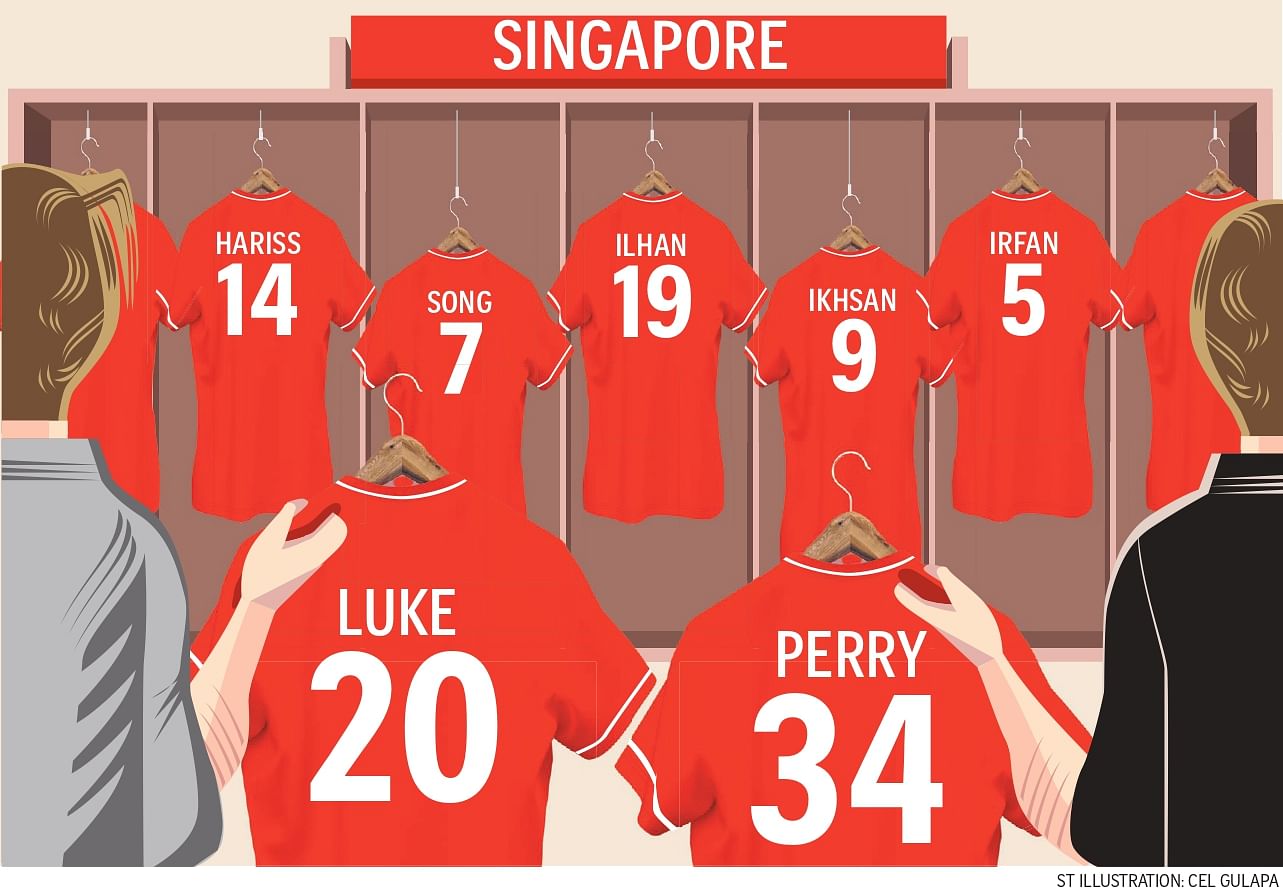Imagine this Lions line-up.
Ikhsan Fandi and Ilhan Fandi up front, with captain Hariss Harun in the middle of the park alongside Sunderland’s Luke O’Nien, just ahead of Cardiff City’s Perry Ng.
Both O’Nien and Ng qualify to represent the national football team through their Singaporean grandfathers, but the rules here may make this a pipe dream.
Singapore has never given the nod to heritage players like these two, as qualifying for a passport by descent is applicable only to individuals with at least one parent who is born in Singapore or is a citizen by registration.
The duo have neither, but make a strong case for inclusion.
The biggest reason to place them on the fast track is Championship football – both players are playing at the second-highest level of the sport in England, and the league’s standard far surpasses any of the best in this region.
Yes, their ages are a concern – Ng and O’Nien are 27 and 28 respectively – but lifting a generation of footballers starts now.
The argument against heritage players – those who have ancestral links to a country – is that they are trading a passport for money or glory.
In the past, Singapore citizenship has been granted to some foreign-born athletes under the Foreign Sports Talent Scheme. Some, like Serbia-born footballer Mustafic Fahrudin and China-born table tennis player Gao Ning have sunk their roots here, but there are others who have renounced their citizenship and returned home after the end of their sporting careers.
In an increasingly borderless and global world, including here where foreigners have chosen to make it their home, we need to reconsider what it means to be a Singaporean.
Look at the Morocco national football team who captured the hearts of fans en route to the 2022 World Cup semi-finals. This was a team who depended heavily on a diaspora of about five million Moroccans who live aboard in European countries such as France, Spain, the Netherlands, Belgium and Italy. Fourteen of the squad’s 26 players were born overseas, the highest proportion for any team but there was no lack of passion among them.
All around the world, sports like football, rugby and basketball, among others, are embracing heritage players.
Closer to home, the recruitment of heritage players has become a successful model in South-east Asian countries like Thailand, Malaysia and Indonesia – who will all be at the Asian Cup in January.
History was made at the recent Fifa Women’s World Cup where the Filipinas made their debut, with only one of the squad’s 23 players born in the Philippines – 18 of them were born in the United States.
This is the reality of sport today. Naysayers may decry this as a “cheat code”, but that was what they said too when foreign-born talent switched allegiance to compete for their adopted countries.
In Singapore the Lions have benefited from foreign-born talent and the national women’s table tennis team have delivered Olympic medals to the delight of Singaporean fans. We have all celebrated their success and while there were some gripes, they have largely been embraced as one of us.
And since we have shown that we were willing to accept foreign-born talent who have no roots here beyond their residency, why should the door be closed on players who have ancestry here?

Perhaps we need to think outside the box and in this regard, we can take a leaf out of the Suriname playbook.
Suriname has capitalised on top-tier athletes with an ancestral link with a sports passport policy that now enables players with dual citizenship to represent the country.
Introduced in 2019, it does not give voting rights, the right to own property, access healthcare or other government services, but allows athletes to represent the country without giving up their other passport. Suriname has called up players from football leagues in Germany, the Netherlands, Slovakia, Turkey, Israel, England and Jamaica to represent the country in major tournaments.
After the sports passport was introduced, Suriname qualified for the Concacaf competition for the first time since 1985.
I can already hear the argument against this. Why should football be given such a privilege? With the Government-backed Unleash the Roar! project, the sport is now part of the national conversation. Ministers have talked about how the sport unites Singaporeans from all walks of life. Even when Singapore football is in the doldrums, it is still able to attract 10,000 fans to the National Stadium, as seen in the Lions’ 2-1 win over Guam earlier in October.
The formula to rejuvenating the Lions is simple. Do we want a better national team? Then we need to field our best players. And the authorities need to play their role in supporting that.
We often hear nostalgic talk of the Kallang Roar, of the good old days when “gelek king” Dollah Kassim mesmerised the crowds.
And for the Lions to dance again, perhaps this is what we need for the future.


